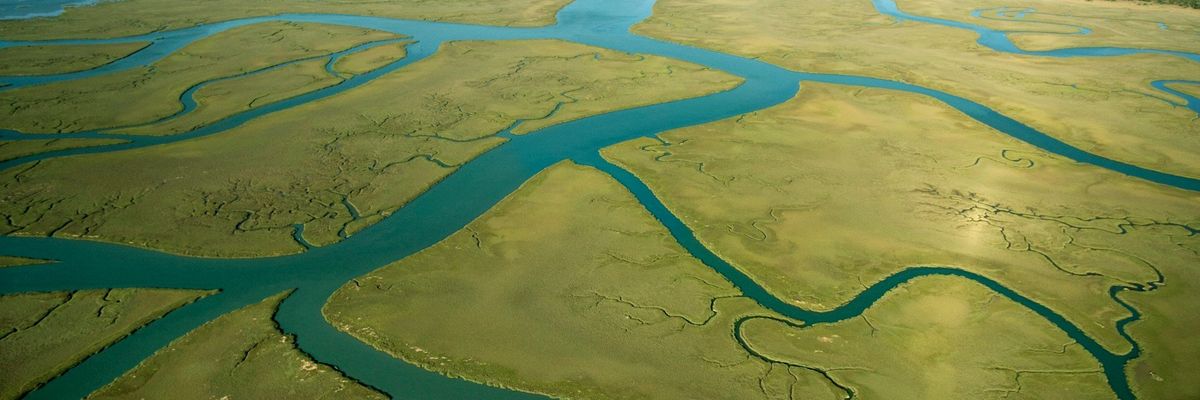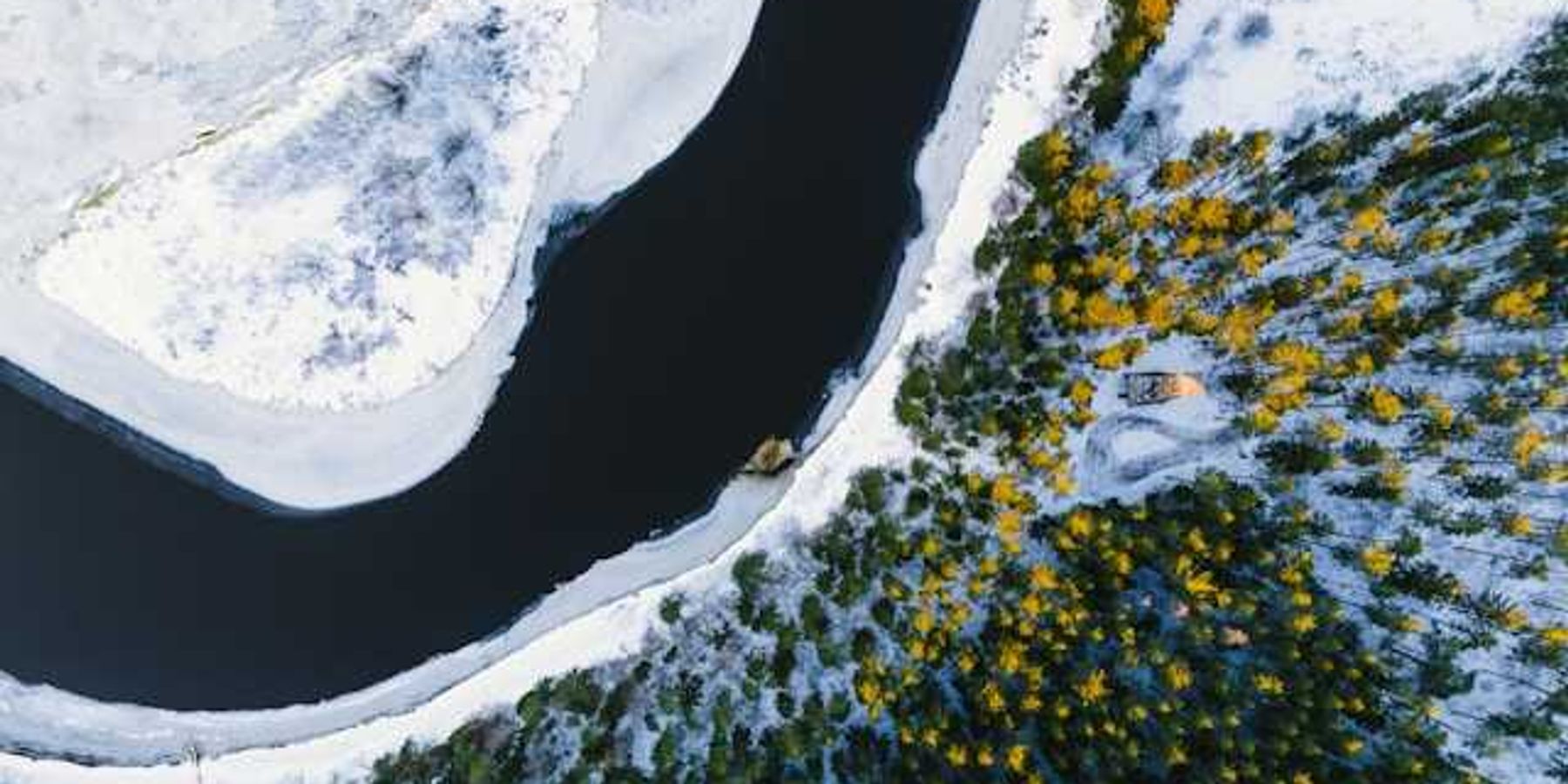colorado river
Biden administration funds Colorado River basin drought resilience
The Biden administration is dedicating $11.1 million to improve drought resilience in the Colorado River basin through a partnership with the Foundation for America's Public Lands.
In short:
- The Bureau of Land Management and its partner will use Inflation Reduction Act funds for drought-related projects over five years.
- The projects aim to restore and protect water resources critical to 40 million people across multiple states.
- The Foundation for America's Public Lands will collaborate with local communities on these initiatives.
Key quote:
“Westerners rely on clean, cold water for everything from drinking to fishing to running businesses.”
— Tracy Stone-Manning, Director of the Bureau of Land Management
Why this matters:
The Colorado River basin, a lifeline for millions across the southwestern United States, has been severely impacted by prolonged droughts, driven in part by climate change. These funds are intended to support a variety of initiatives, including modernizing irrigation systems, restoring ecosystems, and enhancing groundwater recharge techniques. By implementing these measures, the administration hopes to ensure the long-term sustainability of water resources in the region.
Colorado River Indian Tribes gain control of their water rights
The Colorado River Indian Tribes have secured an agreement that allows them to manage their water allocation beyond their lands, aiming to address regional drought issues.
In short:
- The agreement enables the tribes to lease, exchange, or store Colorado River water, marking a shift from previous federal limitations.
- The tribe plans to use the revenue from water management to improve infrastructure and support agricultural projects.
- Leaders of the tribe and state officials celebrated the new pact as a significant advancement for tribal sovereignty and regional water stability.
Key quote:
"The agreement will enable CRIT to continue leading with collaborative strategies in support of the resilience of the Colorado River."
— Deb Haaland, Secretary of the Interior
Why this matters:
This agreement strengthens the tribe's control over their resources and plays an important role in sustainable water management across the Southwest. This could lead to more judicious and perhaps more environmentally conscious water management. Tribes like the CRIT have a deep-rooted cultural connection to their land and natural resources, often embracing stewardship that prioritizes ecological balance. Their involvement in water management could introduce or amplify practices focused on conservation and sustainable use, vital in a region repeatedly stressed by drought and overuse.
Related: In 2023, The federal government decided that while the Navajo Nation does have water rights, established by Winters Doctrine, it will not help the Nation assert those rights.
States present divergent plans for Colorado River water rationing
Officials from states sharing the Colorado River have submitted differing proposals to the federal government on managing severe reductions in the river’s flow due to climate change, with disagreements on equitable distribution of these cutbacks.
In short:
- Seven states sharing the Colorado River have submitted conflicting proposals to the federal government to manage severe water cutbacks amidst ongoing drought and climate concerns.
- The Upper Basin states suggest that the Lower Basin should bear more burden for reductions, while the Lower Basin calls for equitable distribution of cuts among all states.
- Interior Department and Bureau of Reclamation to deliberate on the proposals with an objective to draft a consensus plan by the year's end, as current agreements expire in 2026.
Key quote:
"If we want to protect the system and ensure certainty for the 40 million people who rely on this water source, then we need to address the existing imbalance between supply and demand.”
— Becky Mitchell, Colorado’s Colorado River commissioner
Why this matters:
The outcome of these negotiations is important not just for environmental stewardship, but for health outcomes as well. Millions rely on this water for daily life, and equitable access to clean water is a determinant of public health, echoing a significant national issue of resource sustainability.
Drought prompts states along Colorado River to draft separate water cut plans
In the face of persistent drought, states divided by the Colorado River are presenting individual plans to manage water shortages.
In short:
- Upper and Lower Basin states are independently preparing new operational strategies for the drought-stricken Colorado River.
- The proposal is a preliminary effort to address water scarcity and is set to be presented on March 11.
- There is an ongoing debate on equitable water reduction distribution amidst climate change-induced reductions in river flow.
Key quote:
“We have to acknowledge, though, the pain that is inherent with living on the front lines of climate change.”
— Becky Mitchell, Colorado River commissioner
Why this matters:
Understanding how to sustainably manage the Colorado River is important, as it affects the water supply for more than 40 million people and agriculture. The ongoing negotiations reflect larger issues of climate impact and water rights that have national significance.
Peter Dykstra: Lake Mead is in desperate shape. Along with Lake Powell, upstream on the Colorado River, Mead is the key to prosperity for the booming cities, suburbs and farms of the desert Southwest.
Colorado River's future: a complex challenge amid climate change
The Colorado River, vital for 40 million people, faces an uncertain future due to climate change.
In short:
- Scientists and engineers are developing new strategies to manage the Colorado River's resources in light of climate change.
- The river is crucial for millions, but its future is threatened by environmental changes and diminishing water levels.
- Innovative approaches are being sought to ensure sustainable water distribution and usage.
Key quote:
“We ultimately get a very wide range of conditions that could happen under climate change. And scientists don’t expect that to be narrowing anytime soon.”
— Rebecca Smith, a Bureau of Reclamation official
Why this matters:
This article highlights the critical importance of adapting water management strategies to the realities of climate change. It underscores the need for forward-thinking solutions to safeguard essential resources for millions of people, emphasizing the intersection of environmental science, policy, and human necessity in addressing climate challenges.
Will a shrinking Colorado River shrivel the produce aisle?
The U.S. gets its leafy greens and other fresh produce from the Southwest in winter. Less Colorado River water could mean higher prices or more imported.
Will a shrinking Colorado River shrivel the produce aisle?
The U.S. gets its leafy greens and other fresh produce from the Southwest in winter. Less Colorado River water could mean higher prices or more imported.









